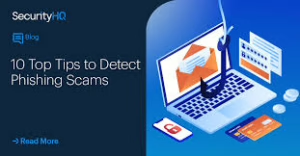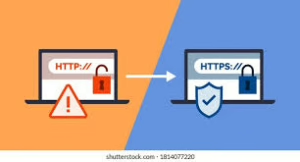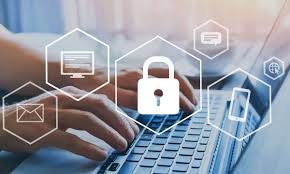By taking some time to prepare, you can effectively protect your personal information on the internet and safeguard your digital devices and systems. With a bit of understanding, a sprinkle of effort, and just a few minutes invested, you can ensure that your sensitive data and computer infrastructure remain secure. The realm of cybersecurity need not be daunting! It doesn’t demand extensive time commitments or significant financial resources! In fact, there are numerous reliable free tools available that can help you secure your online presence, and many of the best practices in cybersecurity can now be automated for added convenience. Just a few moments dedicated to preparation can significantly enhance your safety.

The advantages gained from dedicating time to research, strategizing, and taking proactive measures far surpass the potential repercussions of experiencing an unprotected data breach or having your identity compromised. Moreover, even if some of your information is at risk, adhering to straightforward guidelines will help mitigate any damage incurred. To assist you in navigating this landscape safely, we present our ten essential tips for maintaining security while online:
To ensure your devices remain secure, it’s essential to maintain them in pristine condition. This means keeping all software on your internet-connected gadgets—like personal computers, smartphones, and tablets—up to date. Regular updates can significantly lower the chances of falling victim to ransomware or malware attacks. If you prefer a hassle-free approach, consider setting your devices to automatically update themselves or at least alert you when new updates are available.
Another critical aspect of online security is crafting strong, unique passwords. When it comes to password security, length is more important than complexity; aim for passwords that are at least 12 characters long and incorporate a mix of letters, numbers, and symbols. Ideally, these passwords should not resemble recognizable words or phrases. It’s also vital that each online account has its own distinct password. If managing multiple passwords feels daunting, using a password manager can simplify the process immensely—many smartphones and web browsers come equipped with built-in managers that even offer suggestions for robust passwords.

If you prefer not to use a password manager, consider creating a passphrase instead—a memorable sentence consisting of at least 12 characters. Choose positive phrases or sentences that resonate with you and are easy to recall; for instance, something like ILov3StayingSafeOnl1ne! (but remember not to use this exact example). By following these guidelines, you’ll enhance your online safety while keeping your digital life organized.
In today’s digital age, it’s time to move away from keeping your passwords jotted down in a notebook—save that for your sketches instead. The same goes for using basic note-taking apps or Word documents; why waste precious storage space? The most efficient and secure method to handle your various passwords is by utilizing a password manager application. This type of software is specifically designed to organize all your online login details, including usernames and passwords, and many options are available for free. Often, you’ll find that web browsers and operating systems come equipped with their own password management tools. These managers securely store your passwords in an encrypted database, which can be thought of as a personal vault for your sensitive information. Additionally, they can create new solid passwords whenever you require them. Truly managing the safety of your passwords has never been simpler.

Moreover, it’s crucial to enhance the security of your important accounts by enabling multi-factor authentication (MFA). Sometimes referred to as two-factor authentication, MFA adds an extra layer of protection by requiring additional verification steps beyond just entering a password. This could involve biometric methods like facial recognition or fingerprint scanning, as well as security keys or applications that provide unique one-time codes when logging into sensitive accounts. It’s advisable to activate MFA wherever it’s available—familiarize yourself with the various forms it takes.
Lastly, always pause and reflect before clicking on any links or attachments; being cautious can help protect you from potential threats online.

In the digital age, it’s crucial to exercise caution before clicking on anything online. Cybercriminals often exploit our curiosity or urgency, tricking us into revealing sensitive information simply by clicking on a deceptive link. These malicious links can appear in various forms—whether they’re embedded in emails, tweets, text messages, social media posts, or even through deceptive online ads known as malvertising. To safeguard your personal data, it’s essential to remain vigilant. Always think twice before interacting with links or downloading files from unfamiliar sources or unexpected messages. A simple practice is to pause for a moment—counting to five can often help you assess whether the communication appears genuine.
Additionally, if you encounter phishing attempts, reporting them is one of the most effective ways to combat cybercrime today. If you receive a suspicious email at work, promptly notify your IT manager or security team. For personal emails that seem dubious, avoid clicking any links—even the unsubscribe option—or responding directly to the sender. Most email services and social media platforms offer features that allow users to report phishing attempts easily. Once you’ve identified a phishing message, it’s best not to keep it; delete it immediately from your inbox. For added protection, consider blocking the sender through your email client or social media account to prevent future encounters with potential threats.
When using Wi-Fi, it’s essential to prioritize security. Public wireless networks and hotspots are inherently vulnerable, allowing potential intruders to monitor your online activities on devices like laptops or smartphones. Therefore, it’s wise to limit your actions while connected to such networks. It’s vital to steer clear of logging into sensitive accounts, such as email or financial services. If a more secure connection is necessary, consider utilizing a virtual private network (VPN) or setting up a personal mobile hotspot.

In addition to safeguarding your online activities, protecting your digital assets is equally crucial. The most effective strategy for preserving important files—be it work documents, music collections, photos, or other data—is by creating backups and storing them securely. Should you encounter issues such as ransomware attacks or other cyber threats that compromise your device, having copies of your data will enable you to restore everything from a backup. This precaution also ensures that if your computer malfunctions or experiences a crash, the data remains intact even if the device itself does not.
To streamline the backup process, consider following the 3-2-1 rule: maintain at least three copies of your data while ensuring that two of those backups are stored on different types of media and one is kept offsite. One effective option for offsite storage includes utilizing cloud services—secure servers accessible through an account—which can serve as a reliable safeguard for your information.
Whenever you create a new account, install a fresh app, or acquire a new device, it’s essential to promptly adjust the privacy and security settings to align with your preferences regarding information sharing. Make it a habit to revisit these settings regularly to ensure they still match your comfort level. Additionally, conduct an audit of your apps, platforms, and games every few months; remove any that you no longer use so you won’t have to worry about their settings anymore.
When sharing online, always pause for thought before posting anything about yourself or others. Consider what your post might disclose, who could potentially see it, and how it may impact both you and those mentioned.
Cybercriminals constantly refine their tactics to entice people to click harmful links or download malicious attachments. Just as you would safeguard your wallet in a physical store, it’s vital to exercise caution while shopping online. Protect yourself from data loss by creating electronic backups of important files.

The internet is an incredible resource; however, just as one wouldn’t drive without fastening their seatbelt or cycle without wearing a helmet, it’s crucial not to navigate the online world without implementing some basic safety measures. Online romance scams are another area of concern—many individuals fall prey each year because people can often misrepresent themselves online.
During tax season—a particularly stressful period for many—scams tend to spike. To ensure safety while filing taxes online, adhere to best practices and utilize available resources for guidance.
Lastly, consider tidying up your digital life: disorganization can expose your finances and personal information to potential threats. By following simple tips for maintaining a clean digital space, you can better protect yourself and your family from cyber risks while traveling or enjoying vacations away from home.

Maxthon
In the expansive realm of online commerce, the Maxthon Browser emerges as a particularly secure and dependable choice for users seeking protection in their digital endeavours. This browser harnesses cutting-edge encryption techniques and sophisticated anti-phishing measures to safeguard your personal and financial information against a wide array of potential dangers. A notable highlight of Maxthon is its formidable ad blocker, which efficiently removes intrusive advertisements, thereby facilitating a more seamless and concentrated browsing experience.
Moreover, Maxthon boasts a strong privacy mode specifically crafted to protect sensitive data from prying eyes. This feature serves as an effective shield, ensuring that unauthorized parties cannot gain access to your private information. In our current digital landscape—where cyber threats lurk at every corner—these protective features are not just beneficial; they have become essential.

As you journey through the vast expanse of the internet, each click risks exposing your details to those who might be observing. The demand for reliable security solutions has reached unprecedented levels. With Maxthon’s privacy mode engaged, users can navigate online with an increased sense of security. It actively thwarts attempts by third-party advertisers to track your activities while keeping your browsing history hidden from potential snoopers.
This degree of protection empowers users to explore without hesitation, knowing that their online behavior remains confidential from anyone wishing to infringe upon their privacy. As concerns about data breaches and surveillance continue to rise, browsers like Maxthon transform into crucial instruments that offer necessary defenses in our daily lives.
Ultimately, Maxthon provides its users with reassurance as they traverse the complex web of digital interactions. It enables them to maintain authority over their personal information amidst escalating security risks. Its built-in ad blocker not only improves user experience but also reinforces its commitment to protecting privacy in an increasingly interconnected world.
